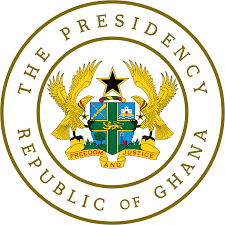Ghana: UNFPA Unveils ‘Ai for Her Future’ to Tackle Child Marriage, Teenage Pregnancy

THE United Nations Population Fund (UNFPA) Ghana has launched the maiden Innovation Challenge dubbed: “AI for Her Future,” aimed at tackling child marriage and teenage pregnancy through technology and creativity.
The hackathon, which brings together young innovators aged 18 to 35 from across Ghana, challenges participants to design and develop bold, tech-based and community-centred solutions to address issues affecting adolescent girls.
Winners would share GH¢180,000 in cash prizes and receive mentorship and training to further develop their ideas.
Speaking at the launch in Accra yesterday, UNFPA Country Representative, Dr Wilfred Ochan, noted that the initiative marked a defining moment for the organisation’s work in Ghana. “We are not only launching a hackathon, we are launching a movement.”
“A movement that insists that in Ghana, the future of our girls will not be determined by poverty, gender norms, or outdated traditions that have stolen too many childhoods,” he said.
Dr Ochan ststed that while progress had been made in reducing child marriage and teenage pregnancy, more needed to be done.
“One in five girls in Ghana is married before her 18th birthday, and nearly 14 per cent of girls between 15 and 19 years are already mothers or pregnant, behind every number is a girl whose dreams were postponed or erased,” he noted.
He further indicated that the hackathon was part of UNFPA’s broader innovation strategy, designed to use new ideas and tools to solve long-standing social challenges. “If we are to end child marriage and teenage pregnancy once and for all, we must disrupt, redesign, and dare to innovate,” he added.
Dr Ochan highlighted the power of artificial intelligence in preventing such problems before they occur.
“Imagine AI alerting a community worker that a 15-year-old girl has suddenly dropped out of school, imagine a chatbot offering confidential reproductive health guidance to a scared young girl at midnight. These are not dreams; they are possible,” he highlighted.
He also explained that the hackathon would feature two tracks–AI and data innovation, and community-based social innovation–to ensure that solutions reach even girls without access to the internet.
Dr Ochan thanked partners including Google, Global Affairs Canada, the African Health Innovation Centre, Stanbic Bank, and the University of Ghana for supporting the initiative.
“No child should be forced into marriage. This is not UNFPA’s fight alone. It is Ghana’s fight,” he stressed.
Google Ghana Country Manager, Mr Perry Nelson, expressed his excitement about partnering with UNFPA on the project, saying that, “At Google, we believe technology is best when it helps society. We are proud to see young innovators using AI to solve real social issues.”
He mentioned some of Google’s local AI projects such as mapping Ghana’s buildings for Google Maps and improving weather forecasts. “With AI, we can predict risks before they occur,” he said.
Mr Nelson again said Google’s AI Community Centre in Accra was built to encourage innovation and problem-solving.
UNFPA Innovation Specialist, Mrs Theresa Yeboah, underlined that the hackathon was part of UNFPA Ghana’s commitment to empowering girls through innovation.
By Ghanaian Times.



